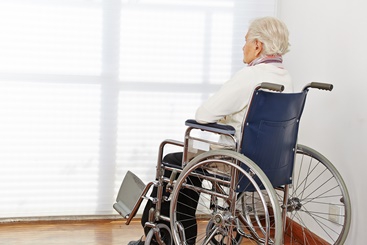 When you seek care provided by a medical professional, it is your right to expect that care will meet minimum standards. Legally, doctors, dentists, pharmacists, chiropractors, psychiatrists, and nurses are required to provide quality care based on accepted professional standards. Medical negligence occurs when they fail to meet these standards—often with devastating results.
When you seek care provided by a medical professional, it is your right to expect that care will meet minimum standards. Legally, doctors, dentists, pharmacists, chiropractors, psychiatrists, and nurses are required to provide quality care based on accepted professional standards. Medical negligence occurs when they fail to meet these standards—often with devastating results.
If you or your loved one have been hurt as the result of medical negligence, discuss your claim with our Kansas medical malpractice lawyers today. At Peterson & Associates, P.C., our team proudly upholds a track record of success in aiding our clients with medical malpractice claims. Over the last two decades, we've collected more than $500 million for injury victims.
How Does Medical Negligence Happen?
Medical negligence occurs through careless or reckless behavior that deviates from established guidelines for medical care.
Misdiagnosis or Delayed Diagnosis
When a medical professional fails to diagnose a condition or delays diagnosis, it can lead to serious harm or even death. This can occur due to a failure to conduct appropriate tests, interpret test results correctly, or recognize symptoms of a serious medical condition.
Surgical Errors
Mistakes made during surgical procedures can be costly, including operating on the wrong body part, leaving surgical instruments inside the patient, or injuring nearby organs.
Medication Errors
Prescribing or administering the wrong medication or incorrect dosage can lead to serious injury or even death. This can occur due to misreading medical charts or patient information, miscommunication among health care professionals, or medication error.
Anesthesia Errors
Anesthesia is vital to many medical procedures, but it can also be dangerous if not administered correctly. Errors can occur in dosage or administration and may result in serious injury or death.
Infections
Health care professionals have a duty to take measures to prevent infections from occurring in their patients, such as properly sterilizing equipment and washing their hands. Failure to do so can lead to serious infections.
Equipment Malfunction
Medical equipment such as monitors, ventilators, and other devices are used to monitor and support patients during medical procedures. If equipment is defective or malfunctions, it can lead to serious injury or death.
Failure to Warn
Medical professionals have a duty to warn patients of the risks associated with certain procedures, medications, or treatments. Failure to do so can result in serious harm to the patient.
Lack of Informed Consent
Patients have the right to make informed decisions about their medical care. If a health care professional fails to obtain informed consent before a procedure or treatment, the patient may have grounds for a medical malpractice claim.
Birth Injuries
Medical malpractice during childbirth can result in birth injuries to both the mother and the child, including cerebral palsy, Erb's palsy, and other serious conditions.
Medical Malpractice-Based Wrongful Death Lawsuits
Negligent medical providers can make mistakes that cause the tragic deaths of children, adults, and elderly individuals. Medical malpractice and wrongful death lawsuits are complex and can involve multiple defendants, including the hospital, doctors, surgeons, nurses, pharmacists, and insurance companies.
In Missouri, a wrongful death claim can be filed by the personal representative of the malpractice victim's estate. The personal representative can be named in their will or appointed by the court if there is no will. The personal representative can file a lawsuit on behalf of the malpractice victim's surviving spouse, children, or other surviving family members.


